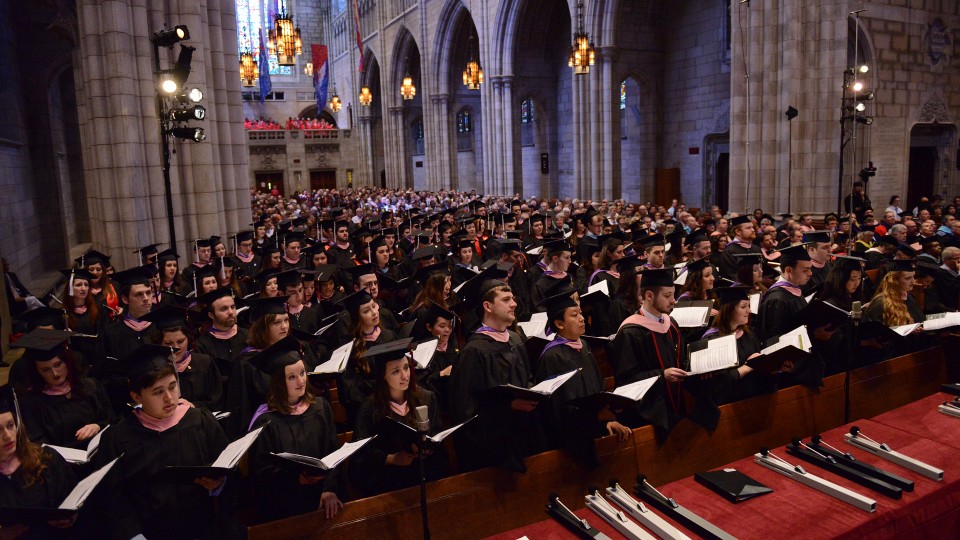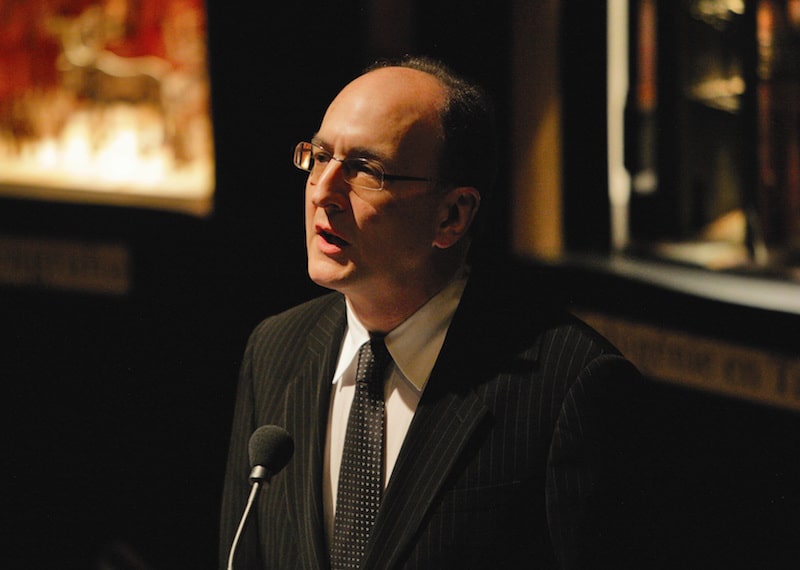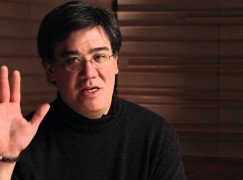The City of London Sinfonia has decided that ‘from this Autumn, their Artistic leadership will be 50% female, and at least one female conductor or director perform at every one of their major artistic series.’
The artistic leadership will be split between Principal Conductor Michael Collins and Creative Director, violinist Alexandra Wood.

The CLS already has more women principals than men, a ratio of 3:2.
Fourteen months ago, the BBC fired the popular Stephen Jackson, director of the BBC Symphony Orchestra chorus, ‘for failing to follow reasonable management instructions’. (George Orwell is alive and well in BBC-speak).
Today, after more than a year of uncertainty, it announced as the new director Neil Ferris, associate chorus director of the LSO and music director of the Wimbledon Choral Society.
Let’s see if he can follow reasonable BBC whatever.

UPDATE: The BBC press release has just landed. They have also hired Grace Rossiter as deputy chorus director. That will required more management, so…
Meanwhile Helen MacLeod joins the BBC in the new position of Choruses Manager of the BBC Symphony Chorus and the BBC Proms Youth Chorus.
Doncha just love the BBC?
The award-winning Heath Quartet has found a replacement for Cerys Jones, who left in November.
She is Sara Wolstenholme, former leader of the Finzi String Quartet and a frequent concertmaster with orchestras in Sweden and the UK.
It will be good to see the Heaths back on the road.

America’s foremost choir college is being threatened with eviction from its Princeton campus by a Rider University president who is obsessed with profit and loss.
Here’s the latest situation from a prominent faculty member:

“Over the past week, President Dell’Omo has been meeting with the Westminster departments. On Monday, he came to voice and piano to let us know where the process was and to answer questions. Although there have been 3 other times selling the campus was considered by the board, the estimated value of the campus is now between 50-60 million dollars, much higher than any other time it was studied. For both the short term cash flow problem and long term health of the entire university, it is being seriously considered now. The full board is meeting this week but he assured us that they are not meeting to make a decision, just to be appraised of where the study is at the moment. They are hoping to make that decision in March. Besides selling the campus and moving Westminster to Lawrenceville, they are or would also consider another institution buying the college, relieving Rider of Westminster Choir College. If the decision to move was made, the earliest it could happen would be the fall 0f 2019.
As you can imagine, the faculty spoke passionately and pointedly about the negative outcomes of moving the campus to Lawrenceville. He listened to it all but kept reiterating that it’s a financial decision. I assured him that if the college was moved to Rider, most of the alumni support, both financially and in student recruitment would be lost, and there would certainly be an enrollment decline which would affect the choirs and perhaps the orchestral associations which are such a crucial part of the Westminster experience and sets the school apart from other colleges and universities. It was clear in the meeting that there will be no major building project to house us, we will be scattered across the campus wherever unused classrooms can be found, with very little thought to what kind of facilities our program needs. For those students who prefer an educational experience at a larger university, America is blessed with many excellent music schools housed in major universities – Indiana, Michigan, Cincinnati, Northwestern, Illinois, Rutgers – you can find wonderful programs in almost any state if that’s what you seek. It would take years to build a reputation to compete with one of those established programs. The excellence that is and has been a hallmark of its programs – an excellence that makes our music education majors sought after by schools, our voice performance majors accepted into major conservatories and apprentice programs as well as finding positions in the academic field, piano majors teaching at many university and community school music programs, conductors accepted into leading doctoral programs and securing academic positions around the country, organists and choir directors in prospering church positions, composers being published and winning recognition – all of this will not survive if moved to a campus that does not have any programs approaching this kind of success, not to mention having a facility that is necessary for the program to exist.
In our meeting with the president and at other meetings I have attended with him over last summer and fall, he stated that one of Rider’s major problems was the fact that the high cost of tuition does not match the perceived value of a Rider degree. Moving a remnant of Westminster there would end a legacy that has affected thousands of people who have come under the influence of our revered programs. I can’t help but end this with the well-known quote from Bernstein “Westminster Choir College provides a great measure of beauty to a world that needs it badly.” That aspect of what we do is totally lost on our administration and the board members who will be making this decision.”
There is a petition to sign here.
Valerie Guy, director of artistic planning and administration at the Chamber Music Society of Lincoln Center since 2002, has handed in her notice. She’s heading for a job in Santa Fe.
Lots more Lincoln people are feeling unsettled by the upcoming building works.

The gaps are looming larger.
Principal trumpet George Vosburgh has announced his retirement after 25 years, together with his wife JoAnn, who is the orchestra’s librarian.
There are now principal vacancies for trumpet, second violin, timpani and concertmaster.

The effects of the lockout continue to be felt.
It’s on Saturday evening and Arte are streaming the concert live. Click here.
Programme:
Pierre Boulez: Initiale
Franz Schubert: Der Hirt auf dem Felsen D 965
Wolfgang Amadeus Mozart: Klavierquartett Es-Dur KV 493
Alban Berg: Kammerkonzert für Klavier und Geige mit 13 Bläsern
Jörg Widmann: Fantasie für Klarinette solo
Pierre Boulez: sur Incises

Marina Bondas, a violinist in the Berlin Radio Symphony Orchestra, fills her spare time playing for families who live in bunkers on the ugly front between Ukraine and Russia.
Marina, 37, left Kiev when she was young but cannot ignore the suffering of her people.
Watch video here.

Father Michael Magiera was once a finalist in the International Luciano Pavarotti Competition.
He has sung in Rigoletto, Traviata, Butterfly, Barber of Seville and many other operas in a career with German and Swiss opera companies.
He still gets called to sing tenor in Mozart Requiems in Chicago.
But his main job these days is serving St. Joseph Catholic Church in Rockdale.
Full story here.

Thomas Campbell delivered record footfall as director of the Metropolitan Museum of Art, up 40 percent. But the deficit kept rising so the board fired him yesterday after seven years.
Jed Bernstein was fired ten months ago as president of the Lincoln Center after promoting a staff member with whom he was having a private relationship.
Matthew Van Besien quit the New York Philharmonic six weeks ago, saying he wanted a more audacious job. Insiders say he couldn’t face the organisation’s coming upheavals and got out while the going was good. Two NY Phil v-ps resigned around the same time.
New York is a tough environment where bottom-line is all and boards act scrupulously in the short-term interest.
One man bucks the trend. Peter Gelb has presided over a collapsing attendance and rising deficit at the Metropolitan Opera. He’s still there after ten and a half years.

In his final concerts in June as music director of the New York Philharmonic, Gilbert has invited musicians from 19 countries to augment his orchestra ‘in support of peace, development, and human rights’.
The countries involved Australia, China, Cuba, Czech Republic, France, Germany, Iran, Iraq, Israel, Lebanon, Mexico, Russia, South Africa, South Korea, Turkey, Venezuela and the United Kingdom.
As the Trump administration burns bridges, Gilbert has made an important gesture to keep human lines open.

The Syrian clarinetist and composer Kinan Azmeh, who struggled to get back to his US home during the Trump travel ban, has been named composer-in-resident at Classical Movements, a DC-based music org.

Classical Movements will commission Kinan to compose a work for full orchestra, as well as chamber and choral pieces.












